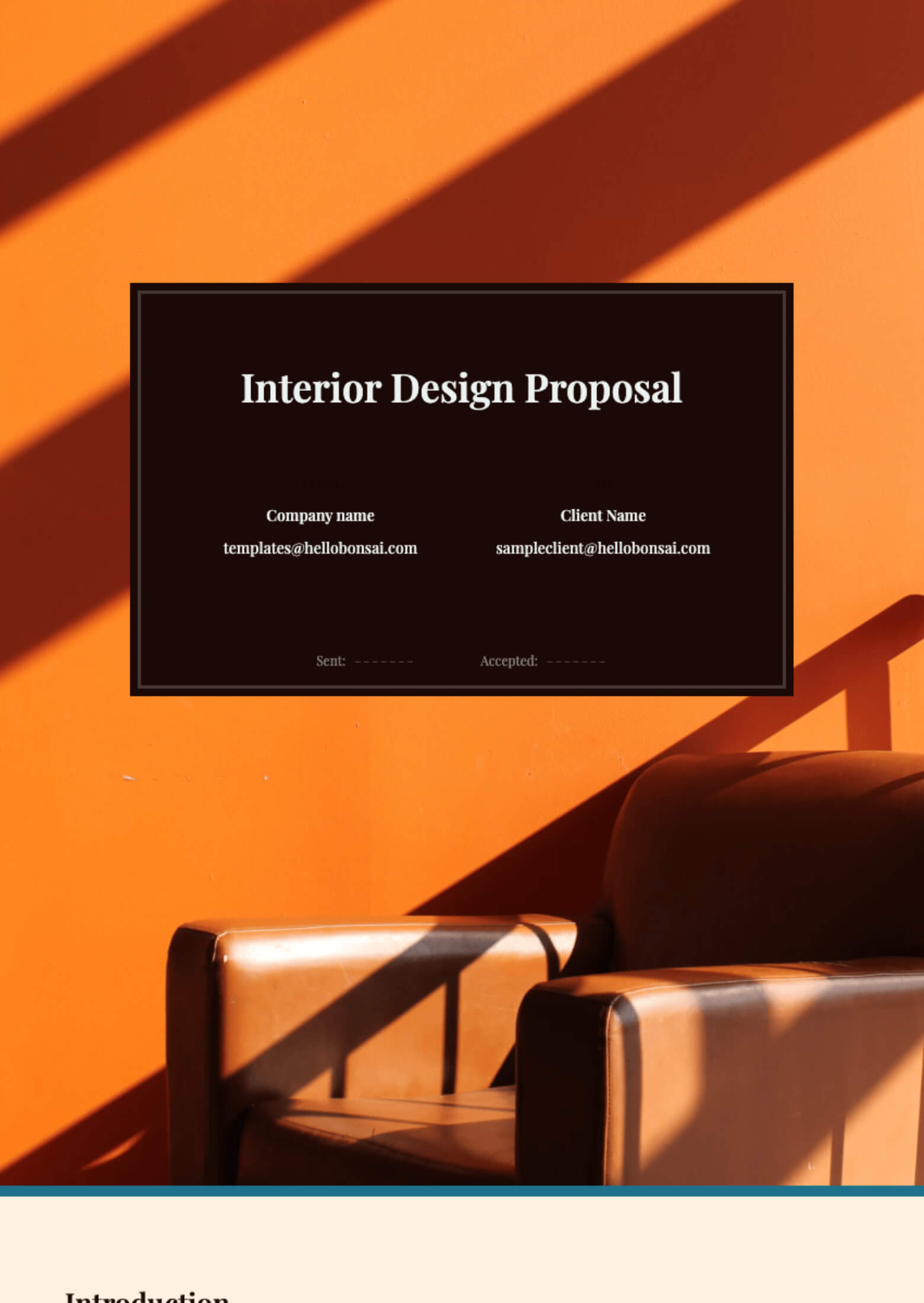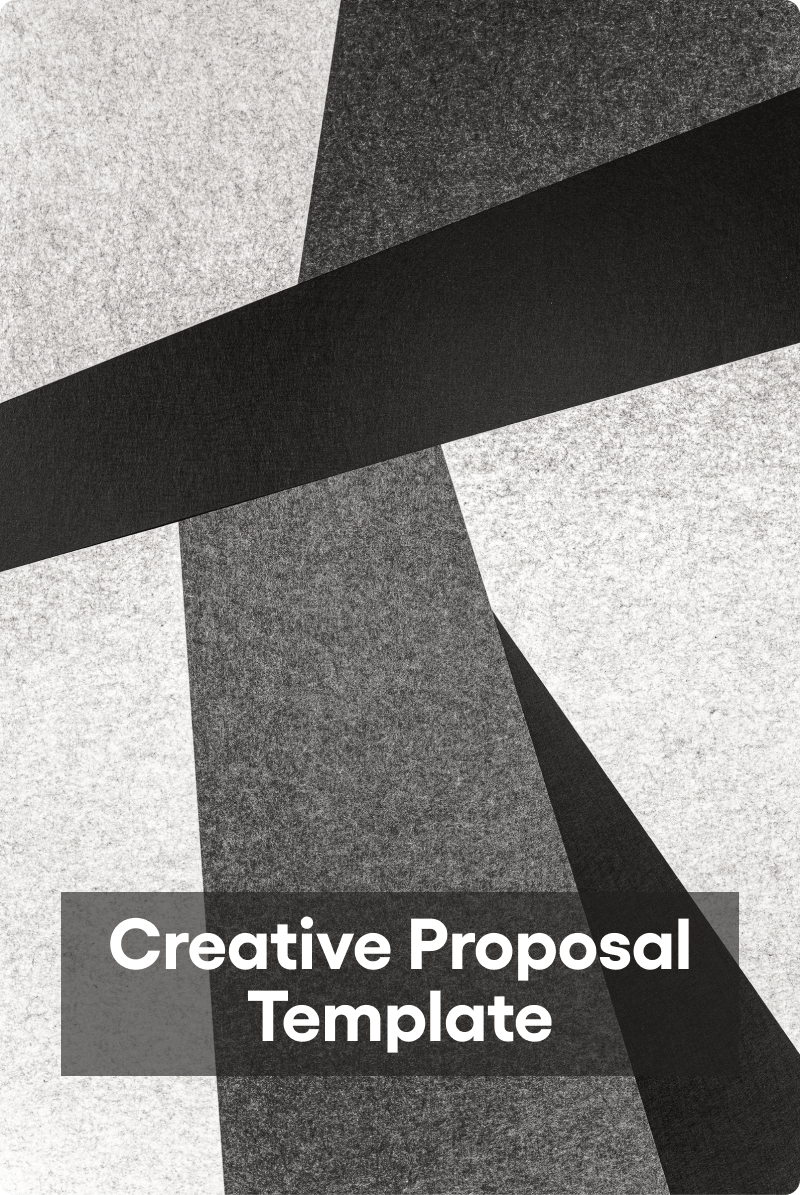A construction proposal outlines tasks, timelines, and resources with project deliverables. It’s a document that persuades the client to hire you for a specific job by showing you have the solution to their problem.
These bids are a tool to assure both the seller and client that they are on the same page, they know what to expect from each other, and have written warranties.
We’ll review the elements of a proper construction proposal template so you can land more deals.
Note: Try Bonsai's free proposal template for building services here. Our pre-made document is easy to customize and has everything you need to send building proposals to potential new clients. Claim your 7-day free trial here.
Anatomy of a Good Construction Proposal Template
We will cover what goes into a winning construction project proposal to help you get new business.
Summary Of The Construction Project
An executive summary is an overview of important information about the construction project including project overview, analysis, and financial information, with a detailed construction bid proposal form to address the problem. It persuades the client to read the rest of the documents.
It’s the hook of your pitch where you tell the reader why they should hire you. Show the client you understand their requirements by summarizing their needs in your construction bid with work objectives and how you plan to accomplish them
Client Information
Your business proposal is a legally binding contract and should have detailed introductions of all parties involved. Spell out your and your client’s details with the company name, current address, and phone number.
It contains all information (or documentation) that your company receives from the client that relates to them, their account, and the provision of services.
It’s important to identify who your client is when going into a contract, it helps protect you in a dispute and keeps you both accountable.
Mention the liabilities and obligations of both parties with information and resources they have and will need to provide (another safeguard).
Work Schedule
The work schedule is an approved project timeline for the contractor in which they must fulfill the work requirements. It helps set the parameters of your work including what milestones to deliver, when, and in which order.
Adding the start and finish date of the entire project is important because the project cost is calculated on time it takes to complete it. If there is any change in the schedule, it will affect the total cost (materials or labor).
Do mention the time and date when the work started as well as when milestones are completed, and see who is responsible for any delays.
Scope of Work
Scope of work is a section in your agreement that outlines the work you will perform, milestones, and deliverables with expected outcomes.
It protects the contractor from scope creep including when the project changes, starts to extend, and goes beyond than what both parties originally agreed on.
So, make it as detailed as possible, with the grade of work performed, proposed schedule, material, quality, and any other necessary information.
Explain it all to the client and get their signature (to make it a legally binding document), it keeps you safe from future disputes, and you won’t have to perform the same work repeatedly.
Project Cost
This is a breakdown of expenses with detailed cost estimates, payment terms, and mode. Write a list of milestones and the percentage of payment the client should make within a given timeframe.
Setting out the terms and conditions beforehand helps keep the cash flow going smoothly. Yes, the local laws and regulations can dictate some of these conditions, but this section keeps you safe against the client refusing to pay (dispute, etc).
Create a list of direct costs with labor (including sub-contractors), materials, equipment, allowances, and indirect costs including office/location rent, and running costs.
Hidden Defects
Hidden Defects mean any hidden flaw in construction that is not discovered in standard testing or physical inspection.
This warranty allows the buyer to cut the price, get reimbursement for repair costs or any harm he suffered. He can even cancel the project.
Adding this section to your pitch saves you from a conflict. Mention things that are or can be out of your control, so you wouldn’tt be held responsible for them.
These include obvious defects including the one’s contractor told the buyer about, and those the buyer knew about or noticed before.
Contractors often forget to define who is liable for the costs of hidden defects or unforeseeable conditions and pay it out of their pocket.
Changes or Extras
Change or extras section (also change order) covers any additional work that isn’t included in the original contract or scope of work is added in this section.
There are two types of work considered extra or additional work in a contract, they are extra and additional work.
Extra work arises outside and independent of the contract itself, something that doesn’t affect the project itself, or isn’t very important. It can be the client’s preferences or some decorative issue.
Warranty
A warranty in the contract is a promise made by the contractor that their work will meet certain requirements. The contractor will either do repairs or reimburse the client if their work doesn’t live up to the warranty’s claim.
It offers buyer certainty and a sense of security. Warranties keep buyers safe if the contractor tries to exploit them (by delivering poor work).
Try Bonsai's Free Construction Proposal Template
Construction proposals help construction companies win more business. They also help plan the whole construction process and prove to your client your construction company has the solution to their problem.
This helps build trust but creating a bid proposal from scratch every time can be challenging as it takes both time and effort. Therefore, having pre-made construction proposal templates can make things easy. Try Bonsai's free proposal templates and use them repeatedly to pitch to clients. Instantly create business proposals, add your company logo, fill in the important elements and send them off to a potential client.
Click here to claim your simple construction proposal template today.









































































































%20(1).svg)
